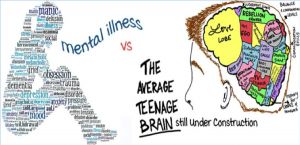School psychologists have knowledge of various systematic impacts on behaviour and mental health. School psychologists play an important role in the early detection and treatment of students with emotional and behaviour concerns in terms of its effects on learning, social/emotional and behavioural outcomes. School psychologists are involved in developing and implementing behaviour change programs at individual, group, classroom, and school-wide levels.
EDPS 674 – Interventions to Promote Socio-Emotional and Behavioural Well-Being
EDPS 676 – Practicum in Social, Emotional and Behavioral Assessment and Intervention
Reference
Fristad, M.A., & MacPherson, H.A. (2014). Evidence-based psychosocial treatments for child and adolescent bipolar spectrum disorders. Journal of Clinical Child and Adolescent Psychology, 43, 339-355.
http://ezproxy.lib.ucalgary.ca/login?url=http://search.ebscohost.com/login.aspx?direct=true&db=ehh&AN=95961673&site=ehost-live
Summary
This article summarizes bipolar disorder and how it affects youth. Although once thought to be primarily a disorder of adulthood, recent research suggests that pediatric bipolar spectrum disorders (BPSDs) are prevalent and serious conditions associated with considerable morbidity and mortality. The article then goes on to outline effective treatment options including psychosocial as well as pharmaceutical.
How Resource has Informed Practice
This article was valuable to me in informing my practice moving forward and I work with children of all ages including those in adolescence where bipolar disorders are more prevalent. It was important to note that the psychosocial interventions for this disorder with children are in their infancy of development and the research should be interpreted with caution in some cases.
Reference
Hipwell, A.E., & Loeber, R. (2006). Do we know which interventions are effective for disruptive and delinquent girls? Clinical Child and Family Psychology Review, 9(3), 221-255.
Summary
Disruptive and delinquent girls are not well served by the mental health and juvenile justice systems. Interventions that have been developed for the behavior problems of boys are frequently applied to girls despite growing evidence for a female-specific phenotype, developmental course, and set of risk factors from middle childhood onwards. The current review demonstrates that evidence of the effectiveness of treatments for girls with disruptive and delinquent behaviors is extremely limited, with relatively few studies including sufficient numbers of females or reporting on treatment effects by gender.
How Resource has Informed Practice
Within the juvenile justice system, delinquent girls are known to have higher rates of mental health problems, such as depression, compared with boys. It is important to understand that while there are differences in gender and the occurrence of certain mental health disorders, they can manifest themselves differently between genders and therefore could require different interventions.
Reference
Silverman, W.K. et al. (2008). Evidence-based psychosocial treatments for children and adolescents exposed to traumatic events.
Journal of Clinical and Adolescent Psychology,
37, 156-183.
http://ezproxy.lib.ucalgary.ca/login?url=http://search.ebscohost.com/login.aspx?direct=true&db=ehh&AN=31657165&site=ehost-live
Summary
This article reviews the current status of psychosocial treatments for children and adolescents who have been exposed to traumatic events. The methods of treatment found to be the most effective were the Trauma- Focused Cognitive-Behavioral Therapy and the School-Based Group Cognitive-Behavioral treatment.
How Resource has Informed Practice
As with making any recommendation for services or interventions, a psychologist is responsible for ensuring that they are evidence-based and positively supported by the research. It is also important that I be aware of my lack of expertise in this area, and refer clients to an appropriate specialist in cognitive therapy and working with clients who have experienced trauma.
